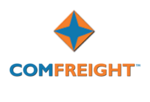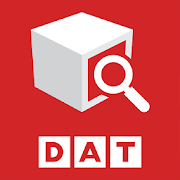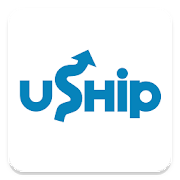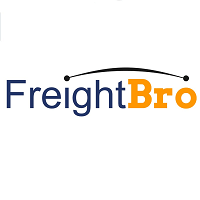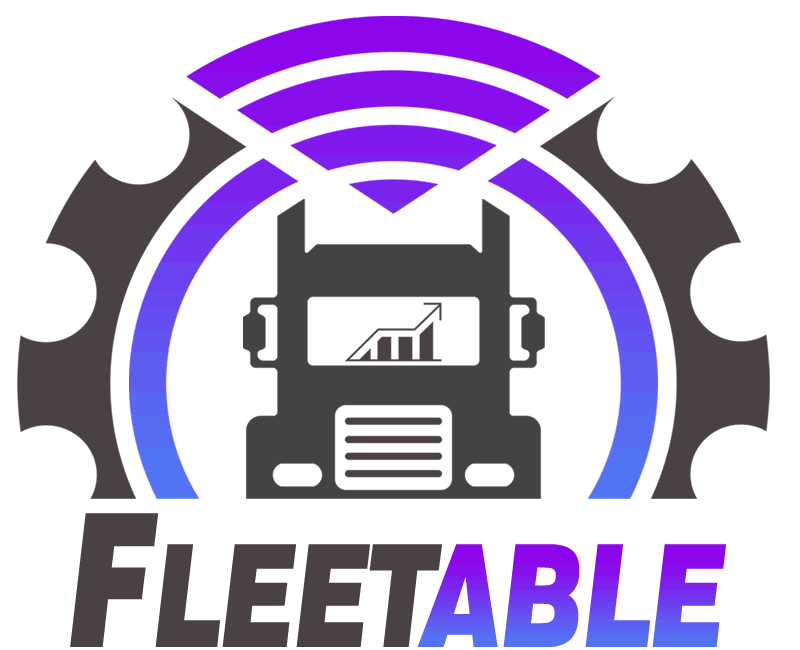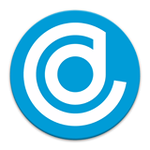Yes, most load board software is accessible across numerous devices and platforms. This means you can use the software on your desktop, laptop, tablet, or smartphone. Furthermore, the software is compatible with a variety of operating systems, including Windows, Mac, and iOS/Android mobile devices. This allows you to stay connected and obtain critical load data while on the go.
List of 20 Best Load Board Software
ComFreight - a software solution that revolutionizes freight payments and streamlines administrative tasks for logistics companies. Seamlessly integrating transparent financing options, ComFreight offers fast and secure transactions, freeing business...Read More ComFreight
DAT Load Board is a online platform designed for the trucking industry to efficiently connect freight shippers, brokers, and carriers. This intuitive solution serves as a virtual marketplace where individuals can effortlessly post, search, and book l...Read More DAT Load Board
uShip the shipping marketplace for oversized and challenging items. Our global platform allows individuals and businesses to easily compare bids from trusted transportation providers, including independent operators and top freight companies. With ve...Read More uShip
FreightBro is an innovative freight forwarding software designed to streamline operations for businesses of all sizes. Our platform simplifies rate distribution, generates quick quotes, and facilitates seamless communication across multiple channels...Read More FreightBro
LoadPanel – your all-in-one solution for trucking operations. Our software streamlines dispatch, enables real-time tracking, and simplifies invoicing for your business. With automated trip features, ELD integration, and transparent pricing, ma...Read More LoadPanel
Weber Load Manager, a highly praised software known for its consistent performance across various applications. It provides superior load management, boosting operational efficiency and reliability. Widely trusted in multiple industries, this tool ha...Read More Weber Load Manager
Fleetable is a Fleet Management Software designed for Enterprises and SMEs. Our easy-to-use interface and Windows compatibility make Fleetable the perfect solution for all your fleet management needs. Effortlessly manage inventory, dispatch, GPS trac...Read More Fleetable
DispatchBot the software that is transforming the industry with its cutting-edge technology. Say goodbye to outdated dispatching methods and experience heightened efficiency and productivity like never before. Our forward-thinking approach is setting...Read More DispatchBot
TruckStop is a software that is transforming the logistics sector. Through cutting-edge technology, it streamlines operations and drive productivity, leading to highly efficient resource management for transportation companies. TruckStops revolutiona...Read More TruckStop
LoadCargo is the leading cargo loading optimization software that revolutionizes the container and truck load planning process. Streamline your load planning with a user-friendly interface, eliminating time-consuming manual calculations. Boost your s...Read More LoadCargo
TDS Loads Xpress is a dispatching and freight billing solution made for full truckload, LTL, brokers, and bulk haulers. With its user-friendly interface, this comprehensive system simplifies logistics operations and ensures efficient management. With...Read More TDS Loads Xpress
Appscrip offers premium app clone scripts to help entrepreneurs create a successful mobile strategy. With our iOS and Android apps, you can easily turn your creative ideas into reality. We also provide personalized mobile app development services for...Read More Appscrip
Getloaded is a load board that has been in operation since 1999, headquartered in Richmond, VA. Our platform is dedicated to helping truckers and brokers efficiently connect and secure truckloads. Our interface serves as a bridge connecting freight c...Read More Getloaded
SmartFreight is a Freight Management Solution that simplifies your shipping procedures, seamlessly connects with multiple carriers, and delivers real-time tracking of your fleet. By leveraging its advanced capabilities, it enhances delivery choices b...Read More SmartFreight
LoadPilot the freight broker software that streamlines load management and boosts productivity for transportation professionals. Our user-friendly interface allows for seamless document management, invoice generation and access to an extensive carrie...Read More LoadPilot
Motive, the advanced technology solution from KeepTruckin that revolutionizes physical economy businesses. Our Automated Operations Platform combines state-of-the-art IoT hardware and AI applications to elevate safety, efficiency, and profitability...Read More Motive
Hellotracks is a top-notch field service management software that utilizes advanced features such as real-time tracking, route optimization, and efficient dispatching to enhance your business operations. With seamless integration to your existing too...Read More Hellotracks
A logistics software, the Continuous Move Planner. This powerful tool is specifically designed to minimize empty miles and maximize transportation asset utilization, resulting in cost savings and improved operational efficiency. Trust our software to...Read More Continuous Move Planner
AscendTMS is a transportation management software designed to streamline your logistics operations. With advanced features such as real-time tracking, automated invoicing, and seamless integration, it optimizes your supply chain and reduces costs. Th...Read More AscendTMS
TruckingOffice is an affordable and user-friendly software designed for owner operators and fleet managers to efficiently manage their daily operations and comply with regulations. It seamlessly integrates with ELDs, providing real-time data and simp...Read More TruckingOffice
Learn More About Load Board Software
- What Is Load Board Software?
- What Are The Recent Trends In Load Board Software?
- Benefits Of Using Load Board Software
- Important Factors To Consider While Purchasing Load Board Software?
- What Are The Key Features To Look For In Load Board Software?
- Why Do Businesses Need Load Board Software?
- How Much Time Is Required To Implement Load Board Software?
- What Is The Level Of Customization Available In Load Board Software?
- Which Industries Can Benefit The Most From Load Board Software?
- Conclusion
What Is Load Board Software?
Load board software is a powerful tool designed to help trucking businesses, freight brokers, and carriers identify and book available loads. It is a digital platform that connects customers with available freight and helps them fill their vehicles to maximize efficiency and revenue. At its core, load board software functions as a digital marketplace where shippers and carriers may easily locate and communicate with one another.
It provides a single location for advertising, locating, and booking available loads, reducing the need for time-consuming phone calls and emails. One of the most important characteristics of load board software is its ability to track loads in real time. This enables carriers to monitor the status of their goods and provide reliable updates to shippers, enhancing communication and confidence between the two sides.
Load board software also provides comprehensive filtering capabilities, allowing users to tailor their search to their individual requirements, such as location, equipment, and load type. This saves time and guarantees that carriers only receive relevant and appropriate load options. Another advantage of load board software is the ability to organize all load-related documents in a one location.
This includes contracts, rate confirmations, and bills of lading, which reduces the administrative load on both shippers and carriers. In addition, load board software frequently interfaces with other transportation management systems, resulting in a smooth and effective workflow for all parties involved. This allows customers to readily obtain load board data, such as pricing and availability, from their existing systems, further expediting the booking process.
Overall, load board software is a vital tool for any company in the transportation industry. It not only simplifies the load booking process, but it also improves fleet utilization, reduces empty miles, and increases income. Load board software, with its user-friendly interface, real-time tracking, and handy document management tools, is an excellent investment for any buyer trying to improve their supply chain operations.
What Are The Recent Trends In Load Board Software?
The environment of load board software is always changing, with new trends emerging to satisfy the freight industry's ever-changing requirements. As purchasers, you must stay up to date on the current trends in order to make the best business decisions.
Here are some of the recent trends to consider when looking for the proper load board software:
1. Real-Time Updates: In today's fast-paced world, businesses want the most up-to-date information to make informed decisions. This is why more and more load board software companies are providing real-time updates on load postings and availability. This means that carriers and shippers will have access to accurate and current information, resulting in easier and more effective operations.
2. Mobile Accessibility: As smartphones and tablets have gotten more popular, the necessity for load board software to be mobile-friendly has grown. Many software suppliers now provide mobile apps or responsive websites, allowing customers to access the load board from anywhere. This not only provides convenience, but also boosts communication and productivity.
3. Sophisticated Analytics: As data becomes more crucial in the freight business, load board software suppliers are adding sophisticated analytics capabilities to their platforms. This enables customers to monitor and evaluate critical indicators like carrier performance, market trends, and cost savings. Businesses can use this information to make data-driven decisions that enhance operations and increase profitability.
4. Integration With TMS: Many firms rely on transportation management systems (TMS) to manage their freight operations. As a result, there is a growing tendency among load board software companies to integrate with TMS platforms. This not only simplifies corporate procedures, but also increases accuracy and decreases errors.
5. AI And Automation: Artificial intelligence (AI) and automation are transforming the freight sector, and load board software is no exception. Many providers are implementing AI features like predictive load matching and automated booking processes. These features help organizations save time and resources by expediting operations.
Benefits Of Using Load Board Software
Load board software is a crucial tool for transportation and trucking companies looking to optimize their operations and increase earnings. This type of software has a number of features and benefits that can help you properly manage and track your cargo, making it a worthwhile investment for any buyer in the transportation sector.
Here are the main advantages of using load board software:
1. Efficient Load Management: With load board software, you can simply manage and track your loads from a single, centralized platform. You can build, allocate, and update loads with a few clicks, minimizing the need for manual data entry and lowering the possibility of errors. This streamlines the load management procedure, saving you time and effort.
2. Real-Time Load Tracking: Load board software allows you to follow your loads in real time, providing accurate and up-to-date information about the progress of your shipments. This allows you to keep track of your loads, anticipate potential delays, and make the necessary adjustments to ensure timely delivery.
3. Improved Visibility And Communication: Load board software provides a clear and consolidated picture of all your loads, allowing you to better monitor and communicate with your drivers. You may send messages, discuss load details, and receive real-time updates on the status of your shipments, which improves overall communication and visibility throughout your organization.
4. Increased Efficiency And Productivity: By automating the load management process and enabling real-time tracking and communication, load board software may dramatically boost your transportation company's efficiency and productivity. This frees up your time to focus on other vital duties, resulting in improved business performance and customer satisfaction.
5. Access To A Huge Network Of Loads And Carriers: Load board software frequently includes a large network of loads and carriers, making it easier to identify and secure loads for your vehicles. This broadens your business prospects and allows you to efficiently match available trucks with available cargoes, so increasing your earning potential.
6. Advanced Reporting And Analytics: Load board software allows you to generate detailed data and analytics on your loads, carriers, and overall business performance. This delivers vital information and enables you to make data-driven decisions to improve company operations and profitability.
Important Factors To Consider While Purchasing Load Board Software?
When it comes to selecting load board software, there are numerous key elements to consider to ensure that you get the best solution for your company's needs.
Here are some important points to keep in mind.
1. Capabilities And Functionality: The load board software's capabilities and functionalities are the first and most important considerations. Make a list of your business needs and look for a system that includes features like load matching, trip planning, invoicing, and real-time tracking.
2. Usability: The program you select should be easy to use and intuitive. This will save you time and effort in the long term, allowing your team to swiftly adjust to the new system without requiring extensive training.
3. Integration Capabilities: If you use other software or solutions in your organization, it is critical to select load board software that interfaces effortlessly. This eliminates the need for human data entry and ensures seamless operations across all of your company systems.
4. Pricing Structure: Load board software might range from a one-time purchase to monthly or annual subscription payments. Consider your budget and select the solution that provides the best value for money. Be wary of hidden expenditures, such as fees for additional features or user licences.
5. Customer Support: Reliable customer service is essential for every software purchase. Look for a company that provides excellent technical support, training materials, and online tools to help you get the most out of your load board software.
6. Security And Data Protection: Because you will be handling sensitive freight and payment information, you must select load board software that prioritizes security and data protection. Look for solutions that include data encryption, regular backups, and compliance with industry standards.
7. Mobile Compatibility: With a large number of trucking companies operating on the go, mobile compatibility is an important feature to consider when selecting load board software. Look for a solution that includes a mobile app or a mobile-responsive website so you may access the software from anywhere at any time.
What Are The Key Features To Look For In Load Board Software?
When it comes to choosing the best load board software, customers should consider a few crucial factors. These characteristics are critical to ensuring that the software fulfills the users' individual demands and requirements while also providing a seamless and efficient load booking and management procedure.
1. User-Friendly Interface: The first and most crucial element to look for in load board software is the interface. This includes the simplicity of navigation, intuitive design, and accessibility to major elements on the main dashboard. A user-friendly design improves the user experience while also saving time and shortening the learning curve for new users.
2. Comprehensive Load Search Functionality: The software should include advanced search capabilities that allow users to filter loads by lane, date, weight, and load type. This facilitates the rapid and efficient identification of the most appropriate and profitable loads.
3. Real-Time Load Tracking: The software should include a capability that enables carriers and shippers to monitor their loads in real time. This promotes transparency and aids in tracking the progress of goods. Additionally, it aids in giving updates to clients and facilitating communication among all parties involved.
4. Integrations: A decent load board software should be able to work with other critical tools including transportation management systems (TMS), electronic logging devices (ELD), and accounting software. This aids in automating operations and increasing efficiency in load booking and administration.
5. Carrier And Shipper Ratings: Look for software that assigns a rating to carriers and shippers based on their performance and comments from previous transactions.
6. Load Payment Management: Load board software should include a function that allows carriers and shippers to conduct secure and convenient payment transactions. This feature promotes user trust and guarantees that loads are delivered on schedule. This saves time while also eliminating the need for manual paperwork and potential errors.
7. Mobile Compatibility: With the increasing use of smartphones, load board software must include a mobile app or be mobile-friendly. Users can control their loads on the go, which gives flexibility and ease.
Why Do Businesses Need Load Board Software?
Businesses in the transportation and logistics industry have the problem of sourcing and managing cargoes on a regular basis. This process requires hours of phone conversations, emails, and documentation, which can be time-consuming and wasteful. Here's when load board software comes in handy. Load board software is a web-based platform for connecting shippers, carriers, and brokers in the transportation business. It streamlines the process of locating, booking, and managing cargo through a single, user-friendly interface.
Here are a few reasons why firms use load board software:
1. Increased Efficiency: Load board software simplifies the load booking procedure, removing the need for numerous phone calls and emails. Carriers can easily search for and book available loads, while brokers can post loads and obtain quotations from carriers. This saves time and minimizes the possibility of errors.
2. Increased Visibility: Manually tracking loads can be a complex and time-consuming operation for enterprises. Load board software allows firms to track their shipments in real time, providing more visibility and control over the whole shipment process. This real-time tracking also enables firms to keep their customers informed about the status of their shipments.
3. Access To A Broader Network: Load board software allows firms to broaden their network by connecting them with a broader pool of shippers, carriers and brokers. This raises the chances of locating and obtaining additional loads, as well as developing long-term commercial connections.
4. Cost Savings: By automating the load booking process, load board software lowers operational costs for enterprises. This removes the need for additional workers to handle loads and guarantees that carriers and brokers receive the most competitive rates for their services.
5. Load Matching: One of the most significant benefits of load board software is its load matching capability. This technology employs algorithms to match available loads with empty vehicles, resulting in optimal capacity utilization for carriers and timely delivery for shippers.
How Much Time Is Required To Implement Load Board Software?
The time required to adopt load board software varies based on a number of factors, including the size of your organization, the complexity of your processes, and the software's functionality. A completely working setup can often take between a few days and a couple of weeks. During the deployment process, the software vendor will collaborate with you to identify your specific requirements and configure the product accordingly. This approach may include some back-and-forth communication and testing to ensure a smooth connection with your current systems.
Furthermore, the time required for implementation is dependent on your team's capacity to adjust to the new program. The provider will provide adequate training and support to ensure that the transfer goes smoothly. It is important to note that the time necessary for implementation may vary depending on your team's level of technical knowledge and familiarity with comparable software. However, with an efficient software provider, the implementation procedure should not take too long.
What Is The Level Of Customization Available In Load Board Software?
The level of flexibility available in load board software varies depending on which program you use. However, most load board software provides a variety of customization options to match the specific demands of each firm. One of the most important components of load board software customization is the ability to modify search filters and preferences.
This enables users to filter their search results to specific cargoes or carriers that satisfy their criteria. They can also set up alerts for certain criteria, such as favorite lanes or load kinds, to receive notifications when new matches become available. Another essential factor in customisation is the option to integrate your company's branding into the software. This may involve adding your brand, color style, and even developing bespoke templates for load postings.
This not only gives your firm a professional appearance, but it also helps to distinguish your listings from others on the load board. In addition, certain load board software allows you to customize workflows and processes. For example, you may be able to construct unique load templates or add custom fields to track data points that are important to your company.
This can help you streamline your processes and increase their efficiency. It's crucial to remember that the level of customisation offered may vary depending on the pricing plan you select. Some lower-cost alternatives may have fewer customization possibilities, whereas higher-tier plans may include more comprehensive customization capabilities. Overall, while selecting load board software, it is critical to assess the level of customization offered and which functions are critical to your organization. Make sure you extensively investigate and demo several software options to discover the greatest fit for your individual requirements.
Which Industries Can Benefit The Most From Load Board Software?
Load board software, often known as freight matching software, is a powerful technology that allows shippers and carriers to rapidly and effectively match loads with available transportation capacity. The advantages of employing load board software are not confined to a single industry, as it is a versatile solution that may help a variety of enterprises and organizations.
1. Transportation And Logistics Companies: Transportation and logistics industries are among the most common users of load board software. These organizations are always looking for and allocating resources, such as trucks and drivers, to meet the needs of their customers. Load board software gives them access to a huge pool of available carriers, allowing them to swiftly and simply identify the best carrier for their cargoes. Additionally, load board software simplifies the booking and dispatching processes, saving time and manual labor.
2. Manufacturing And Distribution Companies: Load board software has the potential to significantly help manufacturing and distribution organizations. These industries frequently have a huge amount of items that must be carried to multiple locations. Load board software allows them to connect with reputable carriers, guaranteeing that their items are delivered on schedule and efficiently. This can help with supply chain management and customer happiness.
3. Small Businesses: Small businesses that rely on transportation services might also benefit from load board software. With limited resources, tiny businesses frequently struggle to locate dependable and affordable carriers. Load board software enables small firms to connect with a broader network of carriers, allowing them to negotiate better prices and save money on transportation costs. This can lead to increased profits for these businesses.
4. E-commerce And Online Retail Businesses: The growth of e-commerce and online retail firms has increased the demand for efficient transportation techniques. Load board software allows these enterprises to quickly and easily discover and book carriers to transport products to their clients. This ensures timely delivery and increases client happiness, resulting in repeat business and great ratings.
5. Farmers And Agricultural Businesses: Load board software can also help farmers and agricultural businesses, especially during the peak harvest season. These enterprises frequently need to deliver big amounts of produce to various areas. Load board software connects them with carriers who have the capacity to deliver their goods, saving them time and effort in identifying appropriate transportation solutions.
Overall, load board software is a very useful tool for any sector that demands transportation services. It provides a low-cost, efficient, and convenient way to connect shippers and carriers, hence optimizing the transportation process for all parties involved. Consider adding load board software into your business operations to realize its numerous benefits and maintain a competitive advantage.
Conclusion
Finally, load board software provides an efficient and cost-effective option for transportation-related organizations. With its comprehensive features and user-friendly design, it simplifies the process of discovering and posting loads, saving time and increasing productivity for carriers and brokers. When choosing load board software, customers should conduct extensive research and compare several options to discover the greatest fit for their individual requirements.
Pricing plans, advanced search filters, automatic booking, customer assistance, and user reviews are all important considerations. Furthermore, buyers should consider the load board software provider's reputation and reliability, as well as their ability to integrate with existing systems and technologies. Businesses that invest in high-quality load board software might acquire a competitive advantage in the industry and improve overall operations.
With the proper technology, they can simply connect with dependable carriers, locate profitable loads, and manage their transportation procedures. It is recommended that purchasers take advantage of free trials or demos provided by load board software suppliers to gain hands-on experience and fully grasp the product's features and usability before making a decision.
Overall, load board software is an important tool for transportation organizations, and by carefully analyzing the elements listed above, purchasers can make an informed decision that will help their company's success. So, do your study and compare your options to obtain the greatest load board software for your individual requirements.
Load Board Software FAQ's
Can Load Board Software Be Accessed Across Multiple Devices And Platforms?
Is Load Board Software Future-Proof And Adaptable To Emerging Technologies Like AI, Blockchain Or IoT?
Yes, most respectable load board software vendors are constantly improving their technology to remain ahead of market trends. This frequently entails integrating with emerging technologies such as AI, blockchain, and IoT to increase efficiency and functionality.
With constant innovation in the logistics industry, load board software must be versatile and future-proof to suit the changing needs of organizations. Rest confident that your load board software is ready to handle emerging technologies for improved performance and outcomes.
Is There A Free Trial Offered To Assess Load Board Software Before Committing?
Yes, many load board software companies provide a free trial period in which users can evaluate their product before committing to a paid membership. These trials are typically 7 to 14 days long and allow users to test the software's features and functionality. It is recommended that you use these free trials to confirm that the software matches your business's goals and specifications before making a commitment.
Does Load Board Software Offer Data Security Features And Meet Regulatory Compliance Standards?
Yes, most load board software solutions provide strong data security features like encryption and user authentication to protect critical information. Furthermore, these softwares are intended to meet with industry norms and regulations such as the Electronic Logging Device (ELD) mandate and Transportation Security Administration (TSA) standards. This provides data security and efficient compliance with regulatory requirements.
Can Load Board Software Integrate Seamlessly With Existing Tools And Platforms?
Yes, most load board software works easily with existing tools and platforms. This means you can integrate your load board software with other systems, such as transportation management or accounting software. This connectivity helps to streamline procedures, reduce manual labor, and provide reliable data. With the proper configuration, load board software may effortlessly interact with your existing tools and platforms, increasing the efficiency of your overall operations.

